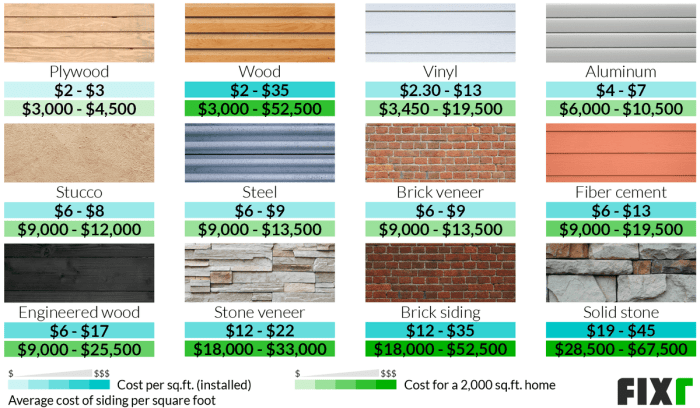Best Insurance Plans for Flooring Installers in 2025: A Comprehensive Guide
Best Insurance Plans for Flooring Installers in 2025 sets the stage for this enthralling narrative, offering readers a glimpse into a story that is rich in detail and brimming with originality. From exploring different insurance coverage options to discussing emerging trends and factors influencing insurance costs, this guide delves deep into the world of insurance for flooring installers.
Types of Insurance Coverage

Insurance coverage for flooring installers is crucial to protect against potential risks and liabilities that may arise during their work. There are different types of insurance options available specifically tailored to the needs of flooring installers. Let's explore the essential coverage options and compare the benefits of general liability insurance versus professional liability insurance for flooring installers.
General Liability Insurance
General liability insurance is a fundamental coverage that provides protection against bodily injury, property damage, and advertising injury claims. This type of insurance is essential for flooring installers as it safeguards them from third-party claims arising from accidents or damages that occur during their work.
General liability insurance can cover legal fees, medical expenses, and settlement costs in case of a lawsuit.
Professional Liability Insurance
Professional liability insurance, also known as errors and omissions insurance, is another crucial coverage for flooring installers. This insurance protects against claims of negligence, errors, or omissions in the services provided. Professional liability insurance is beneficial for flooring installers as it covers legal defense costs and damages awarded in a lawsuit related to professional mistakes or failure to meet client expectations.
Comparison
When comparing general liability insurance and professional liability insurance, it is important to note that general liability insurance focuses on bodily injury and property damage claims, while professional liability insurance specifically addresses claims related to professional services. Both types of insurance are essential for flooring installers to ensure comprehensive coverage and protection against various risks in their line of work.
Emerging Trends in Insurance for 2025
In 2025, insurance plans for flooring installers are expected to undergo significant changes and advancements to better cater to the evolving needs of this specialized industry. Technological innovations and the growing impact of climate change are shaping the landscape of insurance offerings for flooring installers, leading to the development of new solutions and coverage options.
Technology Advancements in Insurance Offerings
With the rise of technology, insurance providers are leveraging tools such as artificial intelligence, data analytics, and digital platforms to streamline processes and offer more personalized insurance plans for flooring installers. These advancements are enabling insurers to assess risks more accurately, provide quicker claims processing, and offer customized coverage options based on individual installer needs.
Impact of Climate Change on Insurance Needs
As climate change continues to affect weather patterns and increase the frequency of natural disasters, insurance needs for flooring installers are also evolving. Insurers are developing new solutions to address the risks associated with extreme weather events, such as flooding, storms, and wildfires, which can damage flooring installations.
This includes offering specialized coverage for climate-related damages and implementing proactive risk mitigation strategies to protect flooring installers from potential losses.
Factors Influencing Insurance Costs
Insurance costs for flooring installers can be influenced by various factors, impacting the premiums they need to pay. Understanding these factors is essential for flooring installers to make informed decisions regarding their insurance plans.
Location
The location of a flooring installer's business plays a significant role in determining insurance costs. Urban areas with higher population densities and increased risk of theft or property damage may result in higher premiums compared to rural areas with lower risks.
Size of Business
The size of a flooring installer's business, including the number of employees and annual revenue, can also impact insurance costs
Previous Claims History
A flooring installer's previous claims history can have a direct impact on insurance premiums. Businesses with a history of frequent claims or large payouts may be considered higher risk by insurance providers, leading to increased costs.
Strategies to Lower Insurance Costs
- Implementing safety protocols and training programs to reduce workplace accidents and injuries can help lower insurance costs. A safer work environment demonstrates a lower risk to insurers.
- Regularly reviewing and updating insurance policies to ensure coverage aligns with the business's current needs can prevent overpaying for unnecessary coverage.
- Consider bundling insurance policies or working with an independent insurance agent to explore discounts and customized coverage options that could result in cost savings.
- Participating in risk management programs offered by insurers to proactively identify and mitigate potential risks can lead to lower premiums over time.
Importance of Tailored Insurance Plans
In the flooring installation industry, having insurance plans tailored to the specific needs of flooring installers is crucial for ensuring comprehensive coverage and protection. Generic insurance plans may not adequately address the unique risks and challenges that flooring installers face in their day-to-day operations.
Therefore, it is essential to design insurance plans that cater specifically to the requirements of flooring professionals.
Sample Insurance Plan for Flooring Installers
- General Liability Insurance: This coverage protects flooring installers against third-party claims of bodily injury or property damage. It can cover legal fees, medical expenses, and settlement costs.
- Professional Liability Insurance: Also known as errors and omissions insurance, this policy provides coverage for claims related to professional negligence, mistakes, or errors in the flooring installation process.
- Workers' Compensation Insurance: This insurance is essential for flooring installers with employees. It covers medical expenses, lost wages, and disability benefits for workers injured on the job.
- Commercial Auto Insurance: Flooring installers who use vehicles for business purposes should have commercial auto insurance to protect against accidents, theft, or damage to company vehicles.
- Tools and Equipment Insurance: This coverage protects flooring installers' tools and equipment from theft, loss, or damage, ensuring that they can continue working without interruptions.
Ending Remarks
In conclusion, Best Insurance Plans for Flooring Installers in 2025 provides valuable insights and considerations for flooring installers looking to protect their business and assets. With tailored insurance plans becoming increasingly important, understanding the evolving landscape of insurance is crucial for success in the industry.
Stay informed, stay protected, and thrive in the world of flooring installation.
Quick FAQs
What are the essential coverage options for flooring installers?
Essential coverage options include general liability insurance, professional liability insurance, and property insurance to protect against common risks in the flooring industry.
How do technology advancements impact insurance plans for flooring installers?
Technology advancements lead to more streamlined processes, improved risk assessment, and tailored coverage options that better suit the needs of flooring installers.
What factors influence the costs of insurance plans for flooring installers?
Factors such as location, business size, claims history, and coverage options selected can all impact the costs of insurance plans for flooring installers.




